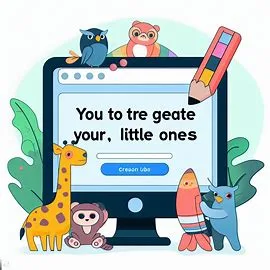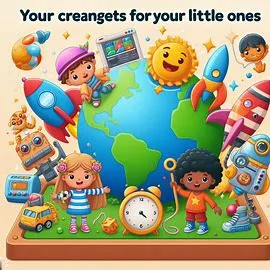PBS Kids Games for Your Little Ones
Are you struggling to find the ideal games for your young children that are both educational and entertaining? Look no further! PBS Kids offers a wide range of engaging and age-appropriate games that are designed to help kids learn and grow while having fun.
In this blog post, we will provide you with valuable tips on how to find the perfect PBS Kids games for your little ones, ensuring hours of enjoyment and learning.
Key Takeaways:
- Age-appropriateness: It is crucial to find PBS Kids games that are suitable for your child’s age and developmental stage. Look for games that offer educational content and appropriate challenges for their age group.
- Educational value: Choose games that offer educational content such as literacy, numeracy, and problem-solving skills. PBS Kids games are known for their focus on learning through play, so prioritize games that offer meaningful educational value.
- Parental involvement: Consider games that encourage parental involvement and supervision. Look for games that provide opportunities for you to engage with your child while they play, and that offer features for setting limits on screen time and monitoring your child’s progress.

Evaluating Age-Appropriate Games
While it’s exciting to introduce your little ones to the world of PBS Kids games, it’s important to ensure that the games they play are suitable for their age and developmental stage. Evaluating age-appropriate games is crucial in providing your children with an enjoyable and educational gaming experience.
Understanding Developmental Stages
Understanding the developmental stages of your child is essential in selecting age-appropriate games. For example, if your child is in the preschool stage, you’ll want to look for games that help them develop basic skills such as counting, letter recognition, and problem-solving.
On the other hand, if your child is in the elementary stage, you may want to focus on games that involve more advanced skills, like critical thinking and creativity.
Selecting Games for Different Age Groups

When selecting games for different age groups, it’s important to consider the content and complexity of the games. For younger children, you’ll want to choose games that are simple to understand and play, with minimal reading and navigation required.
As your children grow older, you can introduce them to more complex games that challenge their cognitive abilities and reasoning skills. Keep in mind that each child is unique, so it’s essential to assess their individual interests and abilities when selecting games.
Categories of PBS Kids Games
Lastly, it’s important to consider the different categories of PBS Kids games available to ensure you’re choosing the best ones for your little ones. These games are designed to be both entertaining and educational, helping your child develop important skills while having fun.
Literacy-Focused Games
When it comes to literacy-focused games, PBS Kids offers a wide variety of options to help your child develop their reading and writing skills. These games often incorporate storytelling, phonics, sight words, and vocabulary building to strengthen your child’s literacy abilities.
By engaging with these games, your child can improve their reading comprehension and writing skills, setting a strong foundation for academic success.
Math and Problem-Solving Games
Math and problem-solving games are another important category to consider when choosing PBS Kids games for your little ones. These games can help your child develop critical thinking, logic, and numeracy skills.
They often involve activities such as counting, sorting, pattern recognition, and solving puzzles, which can all contribute to your child’s mathematical development.
By playing these games, your child can improve their problem-solving abilities and build confidence in tackling mathematical challenges.
Science and Nature Exploration Games

Science and nature exploration games are perfect for nurturing your child’s curiosity about the world around them. These games often focus on introducing concepts such as biology, ecology, astronomy, and environmental science in a fun and interactive way.
By engaging with these games, your child can develop a greater appreciation for the natural world, foster a sense of wonder, and build a foundation for future scientific learning.
Creativity and Arts Games
Finally, creativity and art games can unleash your child’s imagination and artistic talents. These games often involve activities such as drawing, painting, storytelling, and music creation, allowing your child to express themselves creatively.
By engaging with these games, your child can develop their artistic skills, boost their creativity, and gain a deeper understanding of the arts. These games can also provide a positive outlet for self-expression and emotional development.
Tips for Engaging Your Children with PBS Kids Games
Despite the abundance of educational games available, it can sometimes be a challenge to engage your children with PBS Kids games. Here are a few tips to ensure that your little ones get the most out of their gaming experience:
- Introduce them to their favorite PBS Kids characters to pique their interest!
- Encourage them to choose games that align with their current interests and abilities!
- Join in and play the games with them to make it a shared experience!
- Provide positive reinforcement and praise to keep them motivated and engaged!
Though it may take some effort, implementing these tips can greatly enhance your children’s learning and enjoyment of PBS Kids games.
Setting Up a Conducive Learning Environment
When introducing your children to PBS Kids games, it’s important to create a conducive learning environment that will enhance their engagement with the games.
Set up a comfortable and well-lit space where they can play without distractions. Consider providing a mix of seating options to accommodate different preferences and ensure good posture. Additionally, organize the games in a way that makes them easily accessible and visually inviting.
Balancing Screen Time with Other Activities
As appealing as PBS Kids games may be, it’s essential to maintain a balance between screen time and other activities. Encourage your children to engage in physical play, reading, and other educational activities in addition to playing games.
Limit their screen time and establish clear boundaries to ensure that they have a well-rounded and balanced daily routine.
Maximizing Educational Benefits
Your children can reap significant educational benefits from playing PBS Kids games. These games are designed to be not just entertaining, but also enriching and instructive.
By strategically incorporating these games into your child’s routine and encouraging reflective play, you can maximize the educational benefits and help your little one learns and grow.
Incorporating PBS Games into Learning Routines

Integrate PBS Kids games into your child’s daily learning routines by setting aside specific times for gameplay. By incorporating these games into their routine, you can ensure that they are consistently engaging with educational content.
Encourage your child to play games that focus on specific subjects they may need extra help with, such as math, reading, or science. By doing so, you are reinforcing their learning in a fun and interactive way.
Encouraging Reflective Play and Discussion
After your child plays a PBS Kids game, take the time to engage in reflective play and discussion. Ask them about the concepts they learned, the challenges they faced, and how they overcame them.
Encouraging reflective play and discussion can help solidify the educational content they encounter during gameplay. It also provides an opportunity for you to understand your child’s learning progress and address any areas that may need further reinforcement.
By incorporating PBS Kids games into your child’s learning routine and encouraging reflective play and discussion, you can maximize the educational benefits they receive from these games.
This approach engages your child in learning in a fun and interactive way, helping them grow and develop while also reinforcing what they learn in school.
FAQ
How can I find the perfect PBS Kids games for my little ones?
You can find the perfect PBS Kids games for your little ones by visiting the official PBS Kids website or using the PBS Kids Games app. These platforms offer a wide range of educational and entertaining games tailored to different age groups, allowing you to easily find the right games for your children.
Are PBS Kids games educational and safe for children?
Yes, PBS Kids games are designed to be both educational and safe for children. The games are developed with input from early childhood experts and are aligned with the PBS Kids educational goals. They also undergo thorough testing to ensure they are age-appropriate and free from any harmful content.
How can I monitor my child’s usage of PBS Kids games?
You can monitor your child’s usage of PBS Kids games by setting up parental controls on the PBS Kids app or website. Additionally, you can co-play with your child, discussing the games and guiding them through the content. It’s also important to establish screen time limits and encourage a healthy balance of activities for your child.
Final Thoughts
Now that you have learned about the advantages of PBS Kids games and how they can benefit your little ones, it’s time to take action. By incorporating these games into your child’s playtime, you are providing them with a fun and educational experience that can help them develop essential skills.
Remember, your involvement in guiding your child’s use of PBS Kids games is crucial in ensuring they are receiving the most benefits from these educational tools. By actively engaging with your child and discussing the themes and lessons presented in these games, you can help reinforce the positive impact they have on your child’s development.

